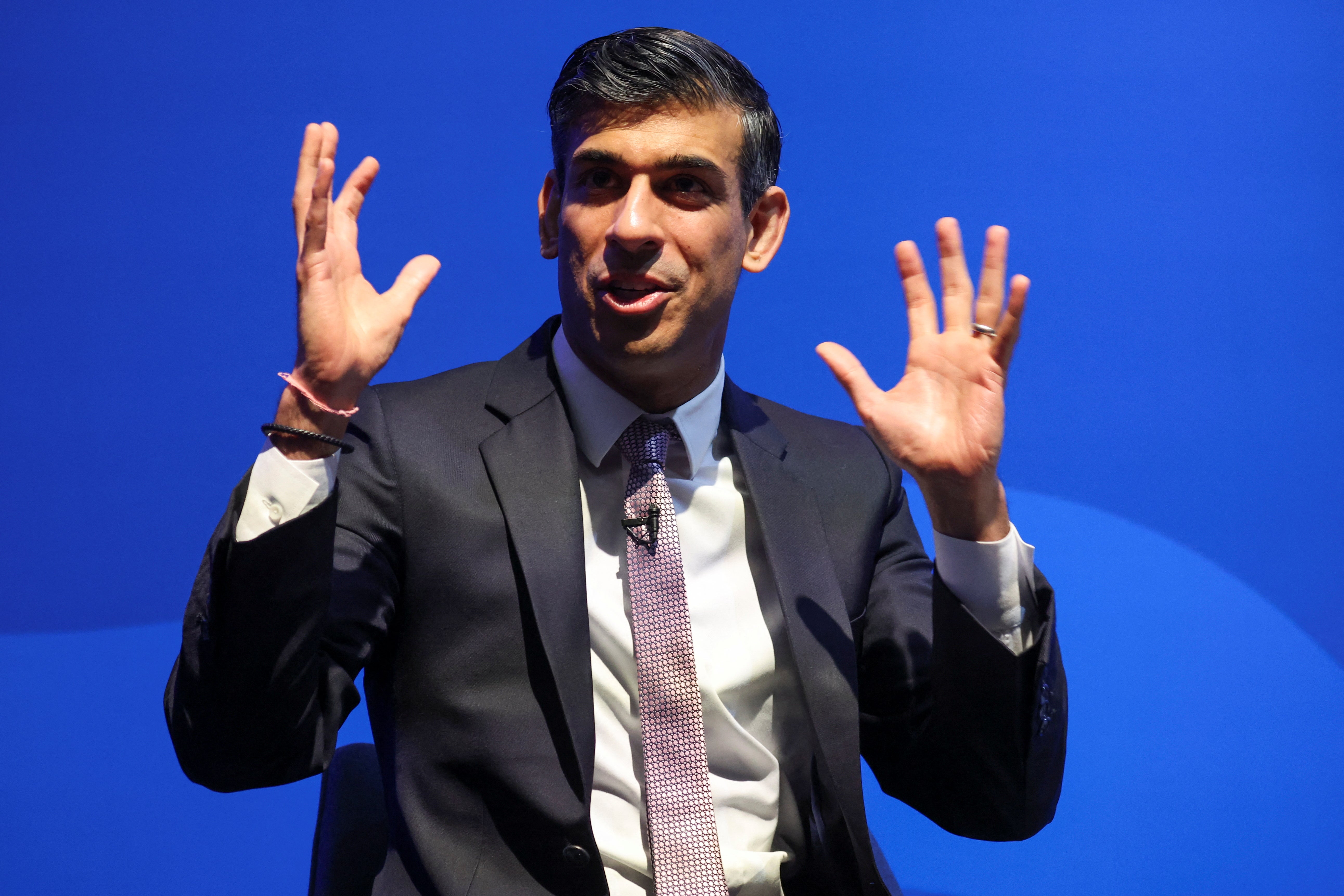Inflation is rising – but there are practical steps we can all take to get through it
What governments do about taxes is not within our control, but what we do with our own finances is, writes Hamish McRae


Inflation is sweeping across the world and everyone is caught up by it. This Wednesday the chancellor, Rishi Sunak, will have used his Spring Statement to revise his tax plans in last October’s Budget. He will probably cut taxes on energy and fuel, perhaps delay the increase in National Insurance contributions, and make some adjustment to the freeze in tax allowances in recognition that inflation is higher than expected..
But what about us? What governments do about taxes is not within our control, but what we do with our own finances is. The Bank of England expects inflation to reach 8 per cent this summer. That is on the Consumer Price Index.
I would expect the older measure, the Retail Price Index, to go above 10 per cent, as it is already 7.8 per cent. You have to go back to 1990 for the RPI to be in double digits, so for most people in the workforce this will be a new experience. How should we cope?
This first thing to say is that not all prices will go up by 10 per cent. That is just an average. Some will go up by more, notably energy, and some by less. So one task is to focus on the goods and services that have really shot up and figure out how to spend less on them, while worrying less on the things that have remained more stable.
We change our spending habits, insofar as we can, to cut our personal inflation rate. However, there is a huge social problem in that people on lower incomes are likely to face higher inflation than those who are better off, because they spend a higher proportion of their income on food and heating. But we all have to try.
The second thing is that companies at every level are very aware of the squeeze. Some will take advantage of inflation, using it as an excuse to up their charges. For example, mobile phone companies are putting out notices that they will link an increase to the RPI rather than the CPI.
But others, notably supermarkets, are responding by stressing value lines of produce. We are not used to worrying so much about food prices, because they account for only 11 per cent of a typical family budget. But it they really ramp up, as I fear they will, we should all think about changes to what we buy and where we buy it. Last year, Aldi was ranked by Which? as the cheapest supermarket chain in the UK.
Third, it is the small regular payments that add up. The experience of working from home, for that proportion of the workforce that is able to do so, will have taught people about the incidental costs of commuting and working from an office. It should also have taught us how to save on those costs, though I am intrigued to see how Pret a Manger coffee and sandwich sales have pretty much recovered to pre-pandemic levels, in London at least. Bloomberg does a Pret Index, which gives an indication as to how much office life has returned to normal.
Four, think about savings. What has happened has been a catastrophe for anyone with much money in a bank account, but given the huge uncertainties, it is hard to advise people to race out and invest in the stock market, or crypto-currencies, or indeed anything.
This is not the place for personal finance advice, but what is worth saying is that what is happening to inflation should be a wake-up call for everyone to do a general sort-out of their finances. Are we saving enough? Are we saving in a tax-efficient way? Are we paying excessive interest on loans? And so on.
To keep up to speed with all the latest opinions and comment sign up to our free weekly Voices Dispatches newsletter by clicking here
Finally, we need to be aware of two things about inflation. First, while inflation will come back down, it may well settle at a higher base than it has been over the past 15 or so years. It may settle at 2 per cent or thereabouts, and that is the central banks’ target. But I think it more likely that we will see it at 3 per cent or more for several years. We must stay cautious.
The other is that even low levels of inflation eat away at the real value of money over time. This century, inflation in the UK has averaged 2.8 per cent a year. That does not sound too bad, but ask how much money would you need now to buy goods that cost £100 in 2000? The Bank of England has a nifty calculator that will tell you. It would be £179.10, and that was in December. Come the end of this year it will be the thick end of £200.
It is an insidious thing, inflation. If this dreadful experience we are having right now teaches us to be more aware of the damage it does, maybe that will be a small silver lining to a dark and dangerous cloud.






Join our commenting forum
Join thought-provoking conversations, follow other Independent readers and see their replies
Comments